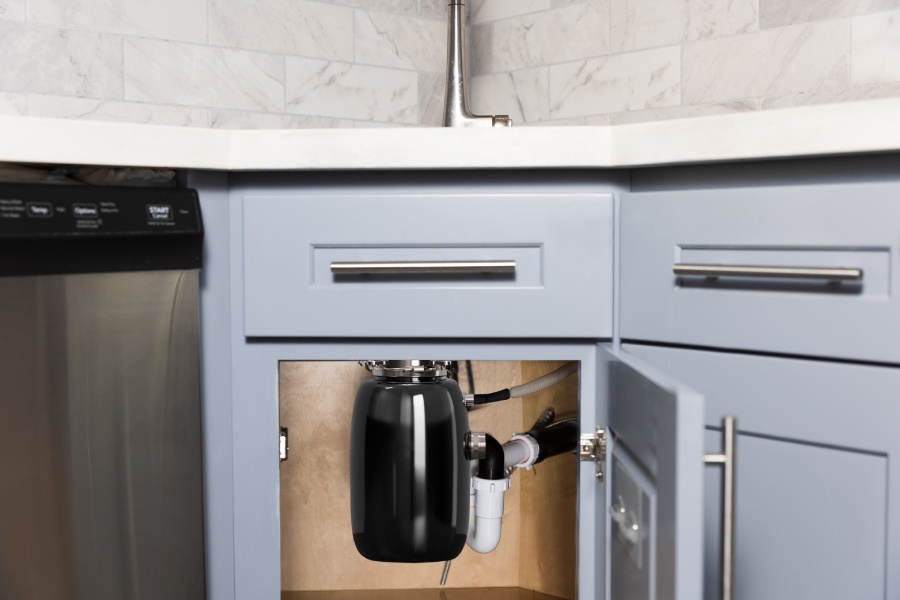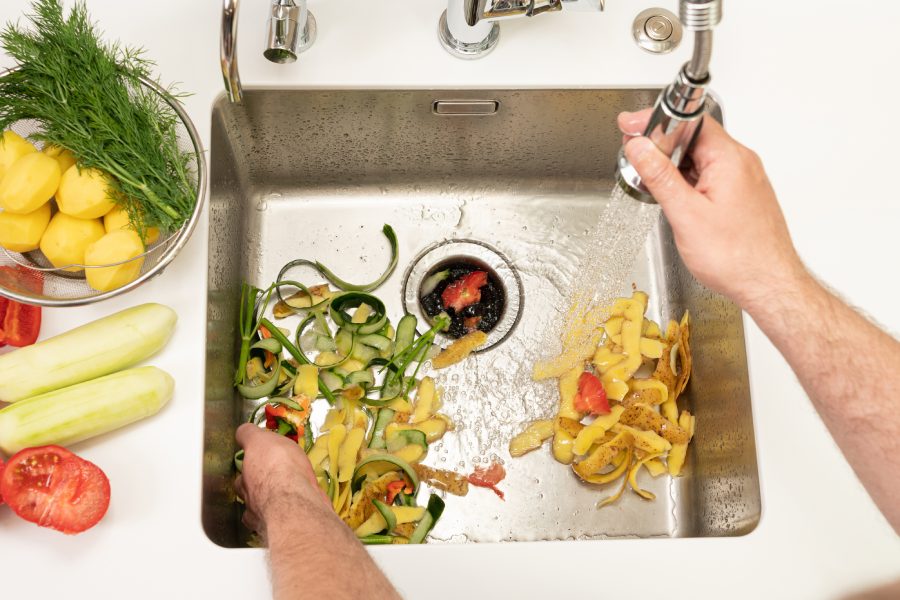In modern home conveniences, garbage disposals have become a staple in many kitchens, offering an easy way to manage food waste. However, installing or using a garbage disposal isn’t always straightforward for homeowners with septic systems. So, can you have a garbage disposal with a septic tank?
The intersection of these two waste management systems raises important questions about compatibility, efficiency, and environmental impact. In this article, we’ll examine how garbage disposals and septic tanks work and the issues that can occur when they are used together.
Let’s explore the factors that could influence whether these two systems can harmoniously coexist!

Can You Have a Garbage Disposal With a Septic Tank?
Yes, you can have a garbage disposal with a septic tank, but it’s crucial to understand the impact this combination can have on your home’s waste management system. While many homeowners successfully use both, the increased solid waste from garbage disposal can strain a septic tank.
If not managed properly, this could lead to more frequent maintenance or system failures. The interaction between these two systems is complex and requires careful consideration. If you choose to use both, it’s important to be aware of best practices and limitations to ensure the longevity of your septic system.
Best Practices for Using a Garbage Disposal With a Septic Tank
Now that you know whether can I use a garbage disposal with a septic tank, we will discuss the best practices for using both. Here are some of them:
Septic-safe models
When choosing garbage disposal for use with a septic system, look for models designed to produce finer food particles. These disposals typically have multiple grinding stages and higher horsepower, which helps reduce strain on your septic tank.
Some brands known for producing septic-safe garbage disposals include InSinkErator Evolution Series, Waste King Legend Series, and Moen GX Series. These models often feature technology that helps break down food waste more thoroughly.
Proper waste disposal
We advise you to avoid using garbage disposal for certain items to minimize strain on your septic system. For instance, fibrous foods like celery and corn husks should never be placed in it. Additionally, refrain from putting hard items such as bones or fruit pits down the disposal, as these can clog the system or take too long to break down.
Instead, focus on disposing of soft, easily biodegradable food scraps. Always run cold water while using the disposal and continue for about 30 seconds afterward to help flush the waste through your pipes and into the septic tank.
Regular maintenance
Schedule regular inspections and pumping every 3 to 5 years to maintain your septic tank effectively. This routine practice helps prevent solid buildup and ensures your system operates efficiently, particularly if you use a garbage disposal.
Also, it’s essential to maintain a healthy bacterial balance in your septic tank. To achieve this, avoid excessive use of harsh chemicals and antibacterial soaps. Instead, consider using septic tank additives specifically designed to enhance beneficial bacteria. However, you should consult our professional before introducing new products into your system.
Factors to Consider Before Installing a Garbage Disposal
Septic tank capacity
Before installing a garbage disposal, it’s essential to evaluate the size and capacity of your septic tank. A larger tank typically handles an increased waste load more effectively than a smaller one, allowing more time for solids to break down before entering the drain field.
The additional solids produced by garbage disposal can substantially affect the maintenance requirements of your septic system. As a result, you may need to increase the frequency of septic tank pumping from every 3-5 years to every 2-3 years to prevent system overload and avoid potential failures.
Waste management practices
When using a garbage disposal with a septic system, it’s vital to minimize the amount of grease, oils, and non-biodegradable materials entering the tank. These substances can disrupt the bacterial balance in your septic system and lead to clogs or system failures.
We recommend adopting responsible waste disposal practices to reduce strain on your septic system. Compost vegetable scraps when possible, scrape plates into the trash before rinsing, and use sink strainers to catch larger food particles. These habits can significantly extend the life of your septic system and reduce maintenance needs.
Benefits and Drawbacks of Using a Garbage Disposal with a Septic Tank
Weighing the advantages and challenges will help you make a more informed decision. Here is more about them:
Benefits
Using a garbage disposal with a septic tank offers the convenience of disposing of food waste directly into the sink. This can make kitchen cleanup easier and quicker, eliminating the need to scrape plates into the trash or compost bin for every meal.
Another significant benefit is the reduction in household waste sent to landfills. By grinding food waste and sending it to your septic system, you’re potentially decreasing your environmental impact and reducing the amount of garbage you need to manage.

Drawbacks
One of the main challenges of using a garbage disposal with a septic tank is the potential for increased solids accumulation. The additional food waste can lead to faster buildup in your tank. This may require more frequent pumping and maintenance. Such measures help prevent system overload.
If not managed properly, the increased organic matter from a garbage disposal can impact the bacterial balance in your septic system. This can affect the system’s efficiency in breaking down waste, potentially leading to issues such as clogs, backups, or even premature failure of the drain field.
Conclusion
We hope this article has helped clarify the complexities of combining a garbage disposal with a septic system. So, can you have a garbage disposal with a septic tank? While possible, using these systems together requires careful consideration and proper management.
You can decide whether garbage disposal suits your septic system by balancing the benefits with potential challenges and following best practices. As mentioned, responsible usage and regular maintenance are essential to ensure both systems operate efficiently.
Whether or not you install a garbage disposal, maintaining a healthy septic system remains the most important factor for your home’s long-term waste management. For expert guidance and reliable service, Septic Tank Installation Riverside is here to help you keep your system running smoothly for years.
Don’t wait; contact our team and let us help you maintain a healthy waste management system for your home!


